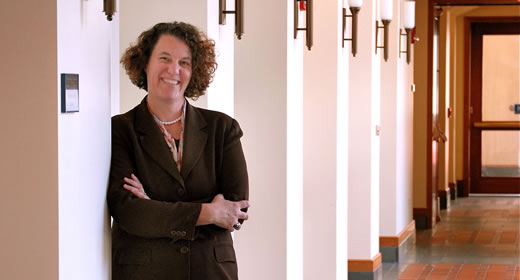
Susan Dynarski was interviewed by Cynthia Canty of Michigan Radio’s “Stateside” program for the recent on-air segment: “Australia, England offer clues on how to fix America’s student loan mess.”
“We don’t have much of a safety net in our country,” Dynarski told Michigan Radio listeners. “If you come out of school and you’ve got a little bit of debt, and you’ve got low earnings, things can go badly quite quickly.” Dynarski argues that the U.S. mortgage-style student loan repayment system, which requires that recent graduates pay a fixed amount for ten years, is “completely out of whack.”
“The first years out of college are when earnings are the lowest and most volatile,” she explains, pointing out that the U.S. repayment period is the shortest she’s seen anywhere in the world. Most countries, she says, give college graduates 20 to 30 years to repay their loans, and in Australia there is no time limit (interestingly, on average, Australians pay their loans off more quickly than Americans because those who earn more, pay more).
In countries like England and Australia, says Dynarski, “repayment flexes with people’s earnings,” similar to social security payments in the U.S. With social security, she says, “if you have your hours cut or if you lose your job, then you’re not making any payments because you don’t have a paycheck.
“What’s typical across the world is some sort of borrowing [for college],” says Dynarski. “What’s not at all typical is the disastrous level of default and financial distress that we see in the U.S. And that’s why I think it’s important to look to other countries for solutions.”
Listen to the segment for more details about Dynarski’s recent testimony to the U.S. Senate Higher Education, Labor, and Pensions Committee; the challenging, but not insurmountable bureaucratic challenges that must be overcome to enact positive policy change; and Dynarski’s blue sky dreams for U.S. college borrowers.
“The Ford School is proud to support Dynarski’s powerful policy engagement around this important concern,” says Elisabeth Gerber, the school's associate dean for research and policy engagement. “Dynarksi’s work represents just the kind of rigorous research with direct policy impact that the Ford School and the University of Michigan seek to advance.”
- Read the Michigan News press release by Nicole Casal Moore (MPA '15).
